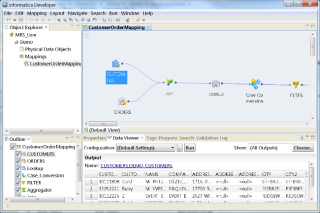How to Install Alfresco Community Edition on Ubuntu 16.04
Using a Different System? Alfresco Community Edition is an open source version of the Alfresco Content Services. It is written in Java and uses PostgreSQL t
Mailtrain is an open-source self hosted newsletter app built on Node.js and MySQL/MariaDB. Mailtrain's source is on GitHub. This guide will show you how to install Mailtrain on a fresh Fedora 28 Vultr instance.
Check the Fedora version.
cat /etc/fedora-release
# Fedora release 28 (Twenty Eight)
Create a new non-root user account with sudo access and switch to it.
useradd -c "John Doe" johndoe && passwd johndoe
usermod -aG wheel johndoe
su - johndoe
NOTE: Replace johndoe with your username.
Ensure that your system is up to date.
sudo dnf check-upgrade || sudo dnf upgrade -y
Set up the timezone.
timedatectl list-timezones
sudo timedatectl set-timezone 'Region/City'
Install required tools and packages.
sudo dnf groupinstall -y 'Development Tools'
sudo dnf install -y unzip ImageMagick gcc-c++
For simplicity, disable SELinux and Firewall.
sudo setenforce 0 ; sudo systemctl stop firewalld ; sudo systemctl disable firewalld
Install Node.js and npm.
sudo dnf install -y nodejs
Check the versions.
node -v && npm -v
# v8.11.3
# 5.6.0
Install MariaDB.
sudo dnf install -y mariadb-server
Check the version.
mysql --version
Start and enable MariaDB.
sudo systemctl start mariadb.service
sudo systemctl enable mariadb.service
Run the mysql_secure installation script to improve security.
sudo mysql_secure_installation
Connect to the MariaDB shell as the root user.
mysql -u root -p
# Enter password:
Create an empty database and user, and remember the credentials.
CREATE DATABASE dbname;
GRANT ALL ON dbname.* TO 'username' IDENTIFIED BY 'password';
FLUSH PRIVILEGES;
exit
Install Nginx.
sudo dnf install -y nginx
Check the version.
nginx -v
Start and enable Nginx.
sudo systemctl start nginx.service
sudo systemctl enable nginx.service
Configure Nginx as an HTTP or HTTPS (if you use SSL) reverse proxy for Mailtrain. Run sudo vi /etc/nginx/conf.d/mailtrain.conf and add the following configuration.
server {
listen [::]:80;
listen 80;
server_name example.com;
charset utf-8;
client_max_body_size 50M;
location / {
proxy_set_header Host $http_host;
proxy_set_header X-Real-IP $remote_addr;
proxy_pass http://127.0.0.1:3000;
proxy_http_version 1.1;
proxy_set_header Upgrade $http_upgrade;
proxy_set_header Connection "upgrade";
proxy_next_upstream error timeout http_502 http_503 http_504;
}
}
Test the configuration.
sudo nginx -t
Reload Nginx.
sudo systemctl reload nginx.service
Create an empty document root folder where Mailtrain should be installed.
sudo mkdir -p /var/www/mailtrain
Navigate to the document root folder.
cd /var/www/mailtrain
Change ownership of the /var/www/mailtrain folder to user johndoe.
sudo chown -R johndoe:johndoe /var/www/mailtrain
Download and unzip Mailtrain.
wget https://github.com/Mailtrain-org/mailtrain/archive/master.zip
unzip master.zip
rm master.zip
mv mailtrain-master/* . && mv mailtrain-master/.* .
rmdir mailtrain-master
Run npm install --production in the Mailtrain folder to install required dependencies.
Copy config/default.toml as config/production.toml and update MySQL and any other settings in it.
cp config/default.toml config/production.toml
vi config/production.toml
Run the server.
NODE_ENV=production npm start
Installation is complete. Login with the username admin and the password test. Once logged in, update the user information and password via the Mailtrain web interface. For more information, visit Mailtrain Github wiki page.
Using a Different System? Alfresco Community Edition is an open source version of the Alfresco Content Services. It is written in Java and uses PostgreSQL t
¿Usando un sistema diferente? osTicket es un sistema de tickets de soporte al cliente de código abierto. El código fuente de osTicket está alojado públicamente en Github. En este tutorial
¿Usando un sistema diferente? osTicket es un sistema de tickets de soporte al cliente de código abierto. El código fuente de osTicket está alojado públicamente en Github. En este tutorial
Using a Different System? Matomo (formerly Piwik) is an open source analytics platform, an open alternative to Google Analytics. Matomo source is hosted o
Using a Different System? Osclass is an open source project that allows you to easily create a classified site without any technical knowledge. Its sourc
Using a Different System? Matomo (formerly Piwik) is an open source analytics platform, an open alternative to Google Analytics. Matomo source is hosted o
¿Usando un sistema diferente? X-Cart es una plataforma de comercio electrónico de código abierto extremadamente flexible con toneladas de características e integraciones. El código fuente de X-Cart es hoste
Using a Different System? Microweber is an open source drag and drop CMS and online shop. Microweber source code is hosted on GitHub. This guide will show yo
Using a Different System? Mailtrain is an open-source self hosted newsletter app built on Node.js and MySQL/MariaDB. Mailtrains source is on GitHub. Thi
Using a Different System? Matomo (formerly Piwik) is an open source analytics platform, an open alternative to Google Analytics. Matomo source is hosted o
Using a Different System? Mailtrain is an open-source self hosted newsletter app built on Node.js and MySQL/MariaDB. Mailtrains source is on GitHub. Thi
Using a Different System? Mailtrain is an open-source self hosted newsletter app built on Node.js and MySQL/MariaDB. Mailtrains source is on GitHub. Thi
¿Usando un sistema diferente? Taiga es una aplicación gratuita y de código abierto para la gestión de proyectos. A diferencia de otras herramientas de gestión de proyectos, Taiga utiliza un incre
Using a Different System? osTicket is an open-source customer support ticketing system. osTicket source code is publicly hosted on Github. In this tutorial
¿Usando un sistema diferente? Alfresco Community Edition es una versión de código abierto de Alfresco Content Services. Está escrito en Java y usa PostgreSQL t
Using a Different System? Introduction Akaunting is a free, open source and online accounting software designed for small businesses and freelancers. It i
¿Usando un sistema diferente? Zammad es un sistema de asistencia / tickets de código abierto diseñado para equipos de atención al cliente. Con Zammad, servicio al cliente
Using a Different System? Akaunting is a free, open source and online accounting software designed for small businesses and freelancers. It is built wit
Using a Different System? InvoicePlane is a free and open source invoicing application. Its source code can be found on this Github repository. This guid
Using a Different System? Matomo (formerly Piwik) is an open source analytics platform, an open alternative to Google Analytics. Matomo source is hosted o
ZPanel, un panel de control de alojamiento web popular, se bifurcó en 2014 a un nuevo proyecto llamado Sentora. Aprende a instalar Sentora en tu servidor con este tutorial.
Aprende cómo instalar Vtiger CRM, una aplicación de gestión de relaciones con el cliente, en CentOS 7 para aumentar tus ventas y mejorar el servicio al cliente.
Esta guía completa le mostrará cómo configurar un servidor Counter-Strike 1.6 en Linux, optimizando el rendimiento y la seguridad para el mejor juego. Aprende los pasos más recientes aquí.
Los ataques de ransomware van en aumento, pero ¿puede la IA ayudar a lidiar con el último virus informático? ¿Es la IA la respuesta? Lea aquí, sepa que la IA es una bendición o una perdición
ReactOS, un sistema operativo de código abierto y gratuito, está aquí con la última versión. ¿Puede satisfacer las necesidades de los usuarios de Windows de hoy en día y acabar con Microsoft? Averigüemos más sobre este estilo antiguo, pero una experiencia de sistema operativo más nueva.
Whatsapp finalmente lanzó la aplicación de escritorio para usuarios de Mac y Windows. Ahora puede acceder a Whatsapp desde Windows o Mac fácilmente. Disponible para Windows 8+ y Mac OS 10.9+
Lea esto para saber cómo la Inteligencia Artificial se está volviendo popular entre las empresas de pequeña escala y cómo está aumentando las probabilidades de hacerlas crecer y dar ventaja a sus competidores.
Recientemente, Apple lanzó macOS Catalina 10.15.4, una actualización complementaria para solucionar problemas, pero parece que la actualización está causando más problemas que conducen al bloqueo de las máquinas Mac. Lee este artículo para obtener más información
13 Herramientas comerciales de extracción de datos de Big Data
Nuestra computadora almacena todos los datos de una manera organizada conocida como sistema de archivos de diario. Es un método eficiente que permite a la computadora buscar y mostrar archivos tan pronto como presiona buscar.




